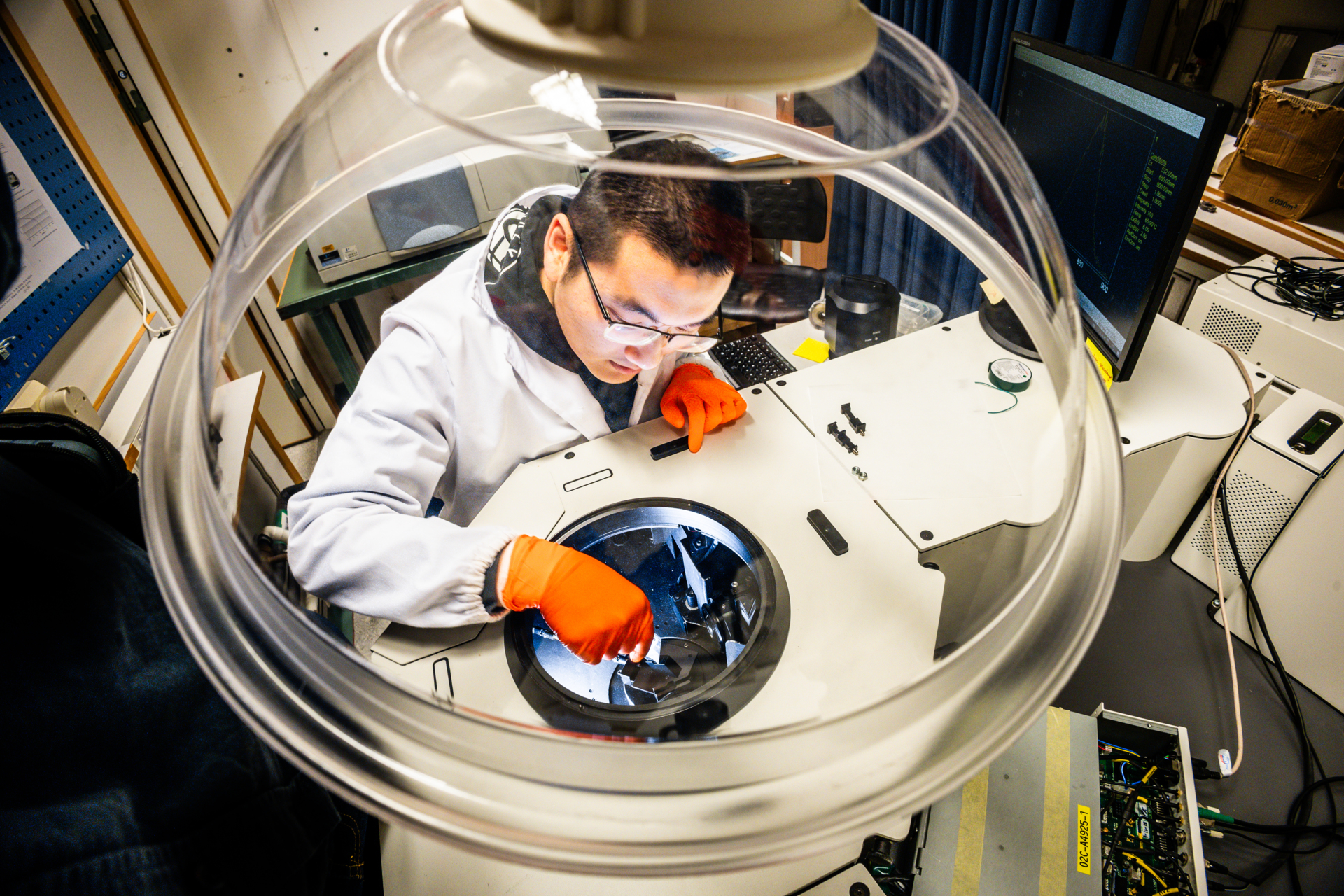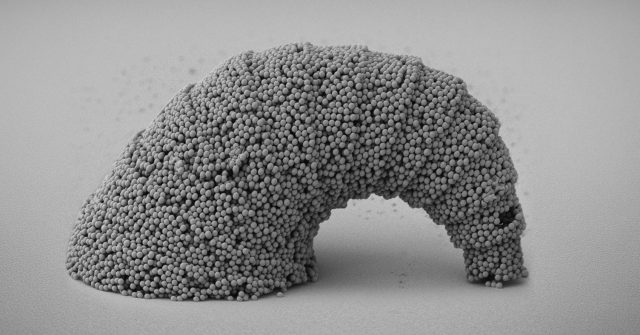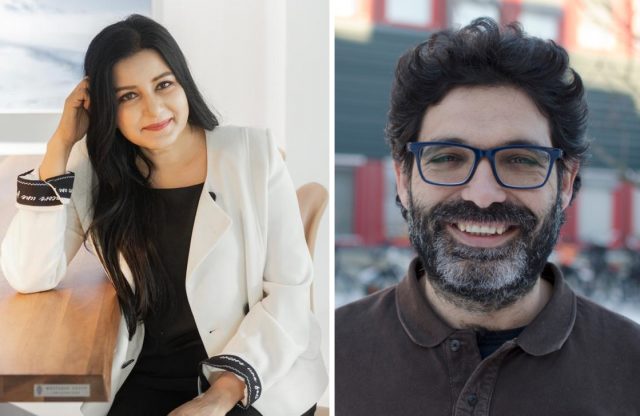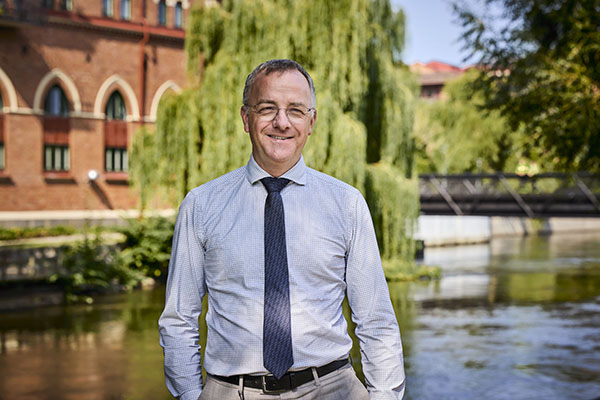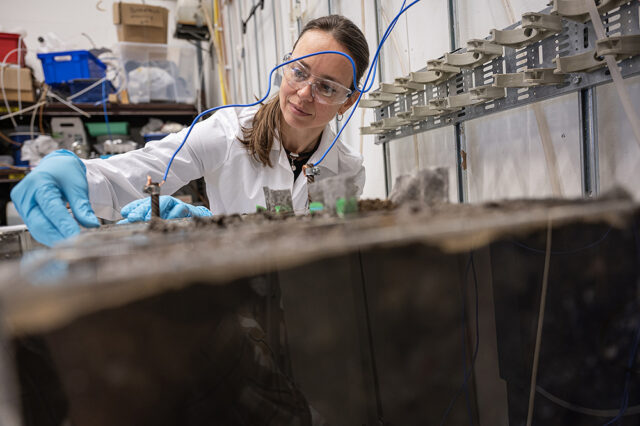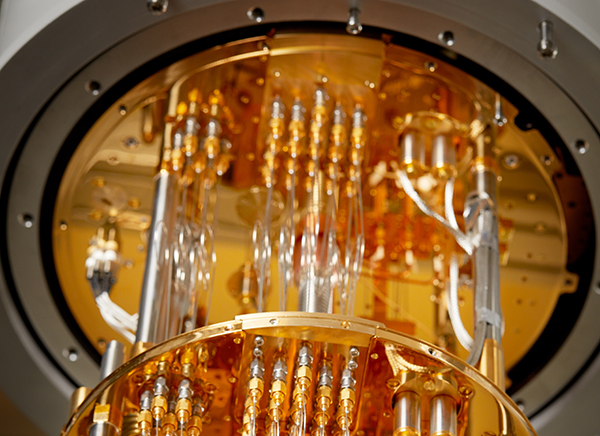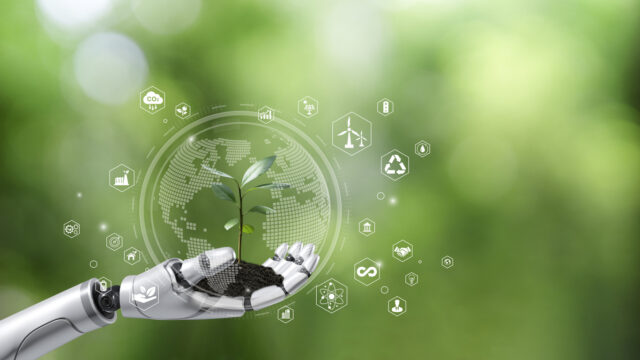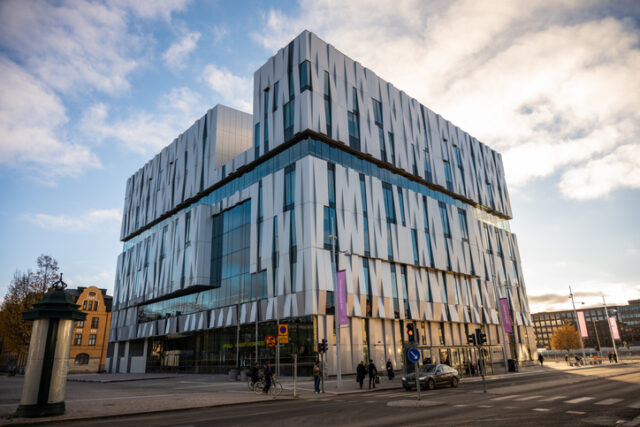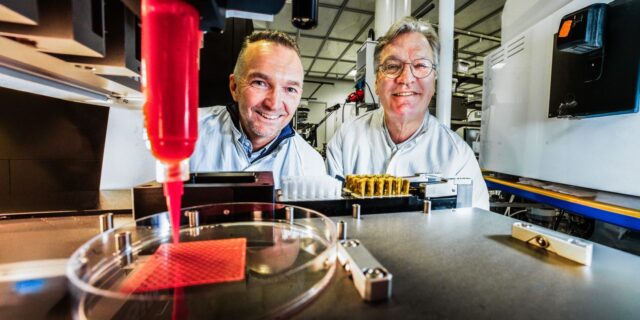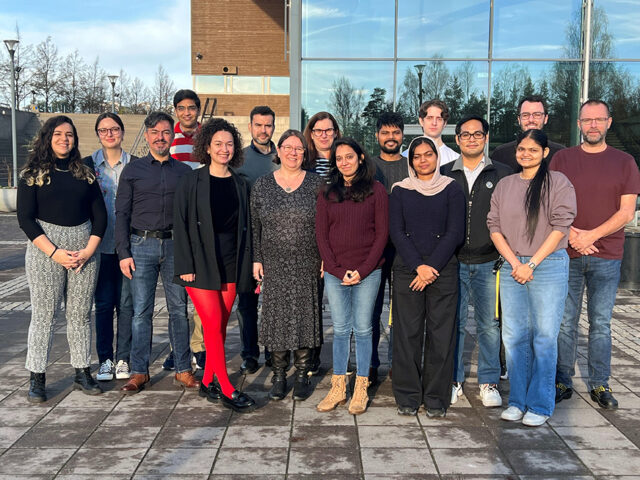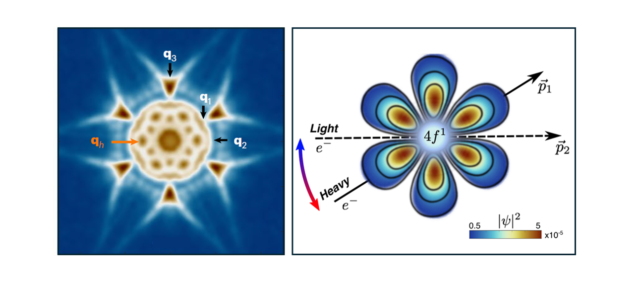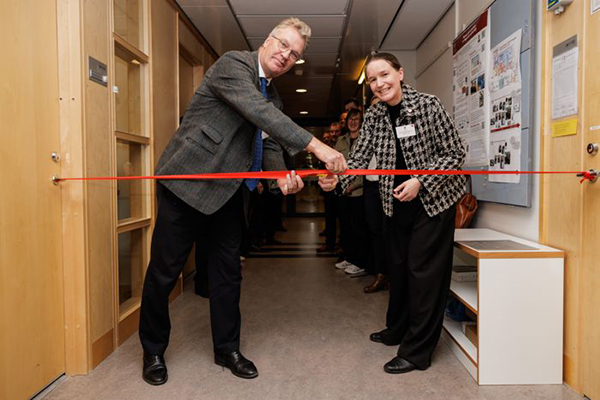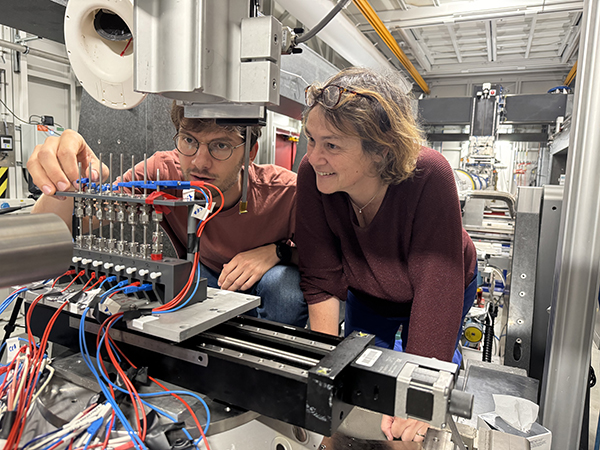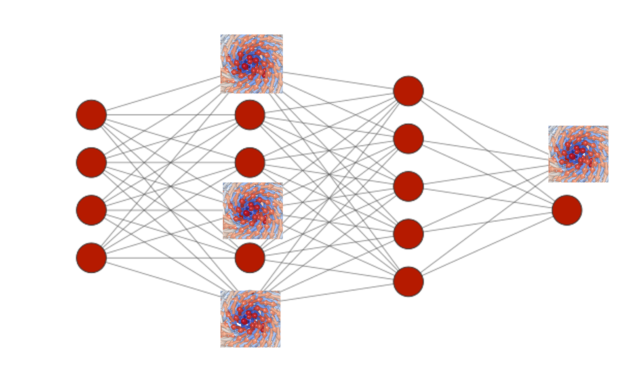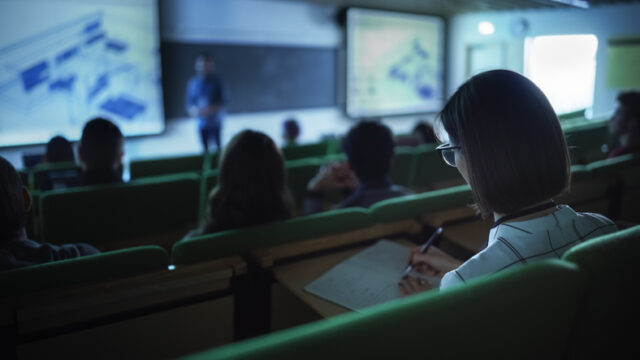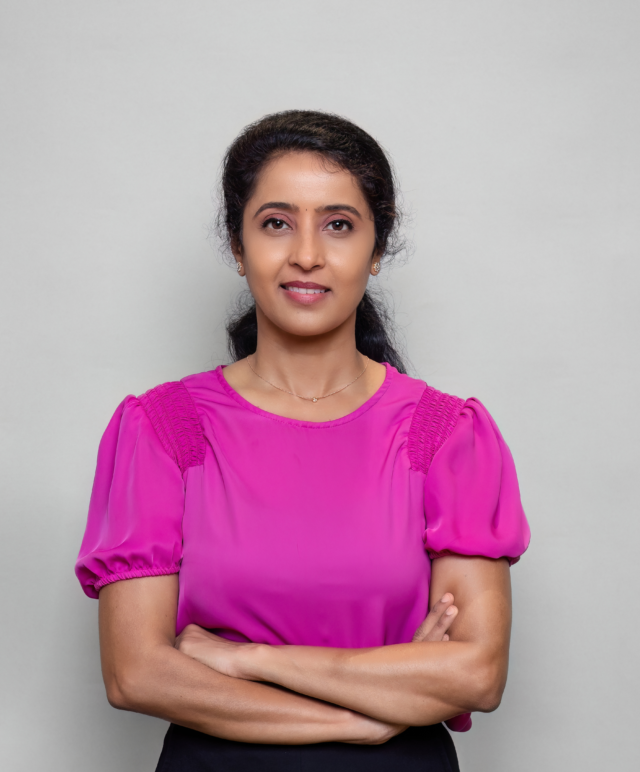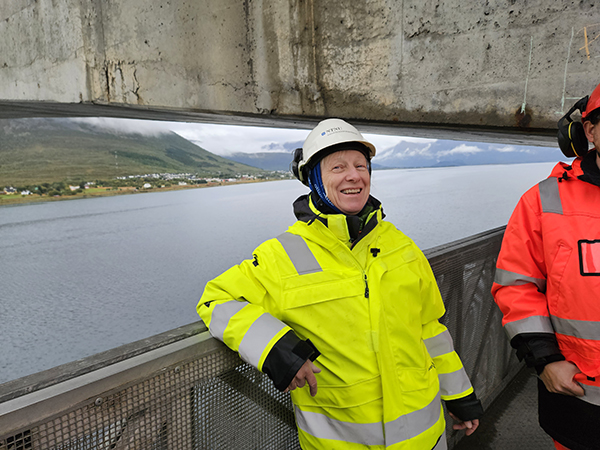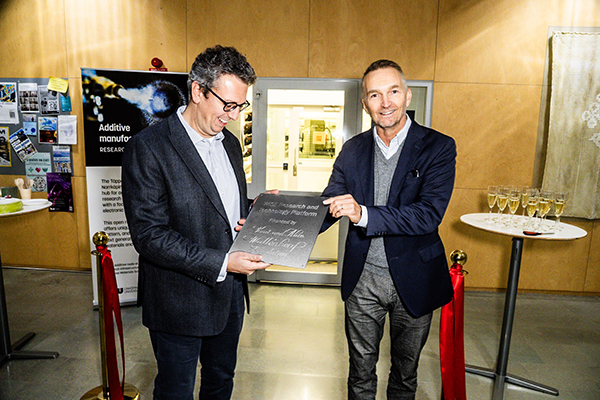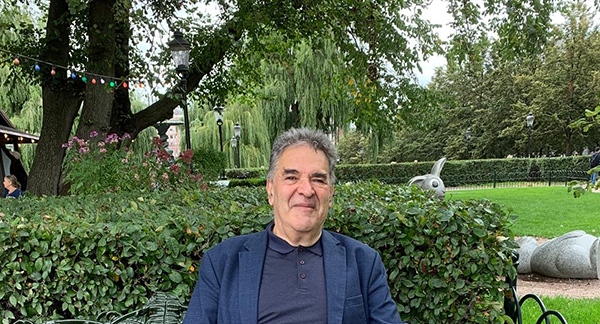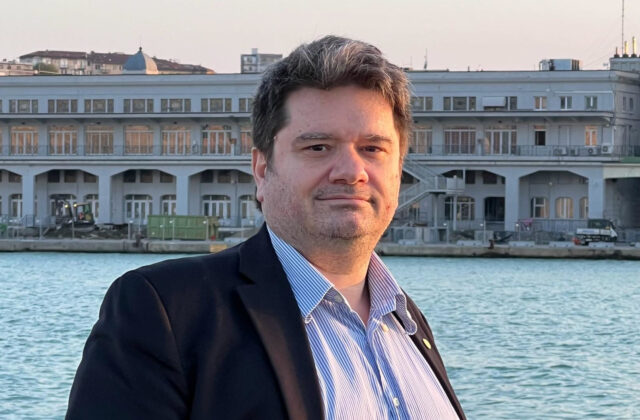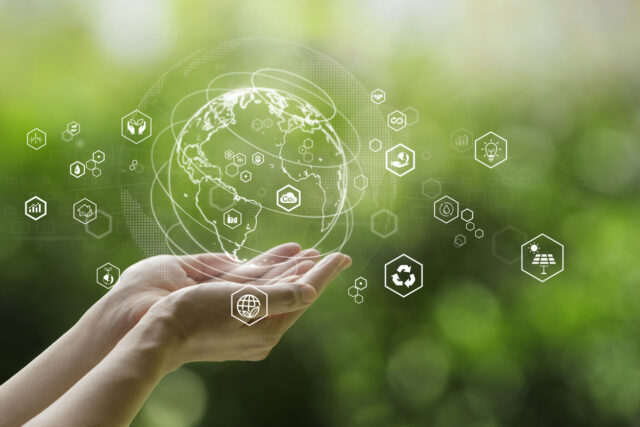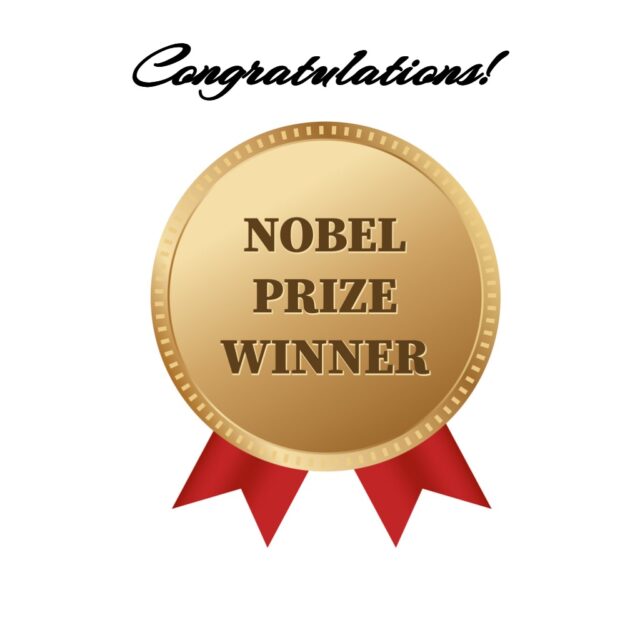[In the photo, Xun Xiao, researcher and first author of the Nature article. Credit: Thor Balkhed at Liu.]
Solar cells, or photovoltaic (PV) cells, convert sunlight directly into electricity, playing a big role in building a more sustainable energy system. Yet, as with many emerging technologies, their rapid adoption brings new challenges— what happens to all the waste as more of these cells reach the end of their life? A recent article published in Nature, titled “Aqueous-based recycling of perovskite photovoltaics,” tackles this issue. Professor Feng Gao and his team at Linköping University underscore the urgent need for effective recycling strategies. They introduce a low-cost, environmentally friendly, solvent-based method capable of recovering all valuable components from perovskite PV waste. This holistic approach offers a promising pathway toward managing waste sustainably as the technology continues to scale.
Perovskite solar cells—named after perovskite materials—are one of the most promising next-generation photovoltaic (PV) technologies. They show potential for high efficiency and low production costs. But as we have learned from the evolution of conventional silicon PVs, developing recycling technologies for a sustainable PV system is essential before commercialization. For perovskite PVs in particular, recycling is not just about resource recovery—it is also a critical step in reducing lead use and safely managing the toxic lead-containing waste these devices can generate. Adding to the urgency, global regulations are increasingly placing responsibility on PV manufacturers to collect and recycle their end-of-life products.
In a recent Nature article, “Aqueous-based recycling of perovskite photovoltaics” [Nature 638, 670–675 (2025)], Professor Feng Gao, Xun Xiao and collaborators at Linköping University present an environmentally friendly recycling strategy for perovskite PVs. Their strategy uses a water-based solvent to recover nearly all key functional materials in the module—including the hole and electron transport layers, the perovskite absorber layer, indium tin oxide substrates, and cover glass—with high efficiency and purity.
– We immerse degraded perovskites into an aqueous solution for repairing and reclaiming high-quality perovskite crystals. This approach has achieved an impressive 99.0 ± 0.4 wt% recycling efficiency, says Prof. Feng Gao, WISE-affiliated researcher and optoelectronics professor at Linköping University.
Even after undergoing multiple cycles of degradation and recycling, the recovered devices show comparable efficiency and stability to brand-new ones. Beyond technical performance, the strategy also delivers strong environmental and economic benefits: it reduces resource depletion by 96.6% and cuts human toxicity impacts (cancer-related) by 68.8%, compared to landfill disposal. Plus, it helps lower the levelized cost of electricity for both residential and utility-scale systems.
Prof. Feng Gao’s and collaborators’ article “Aqueous-based recycling of perovskite photovoltaics” is published in Nature, [Nature 638, 670-675 (2025)].
Prof. Feng Gao’s research at WISE can be found at:
End-of-life Perovskite Solar Module Recycling for Sustainable Photovoltaics
